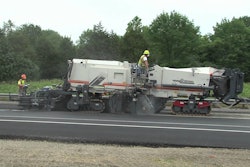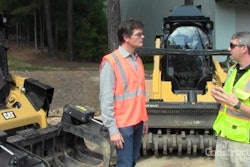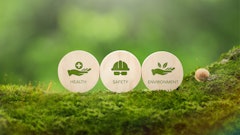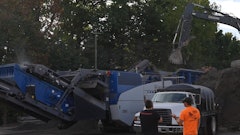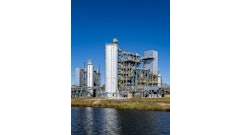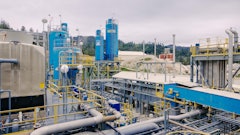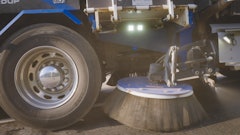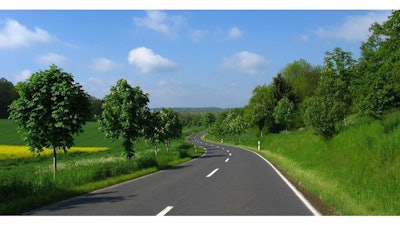
Asphalt pavement mixes have grown significantly more sustainable over the past five years thanks to the increased use of recycled materials and energy-saving warm-mix technologies.
According to the latest survey of asphalt mix producers conducted by the National Asphalt Pavement Association (NAPA) in partnership with the Federal Highway Administration (FHWA), 106.4 million tons of warm-mix asphalt — nearly a third of all asphalt pavement mix production — was used during the 2013 construction season. This marks a greater than 533 percent increase in the use of warm mix since 2009, the first year the survey was conducted.
Warm-mix asphalt is produced with a range of technologies that reduce the production and placement temperature of asphalt pavement mixtures. A variety of environmental, worker safety, and construction benefits have been realized through the adoption of warm-mix asphalt.
“Innovation is an important principle for the asphalt pavement industry. The use of warm-mix technologies, as well as recycled materials, helps us improve both the quality and sustainability of asphalt pavements,” said Bill Ensor, NAPA 2014 Chairman and President of Maryland Paving Inc. “These latest survey results reveal just how cool and green today’s asphalt pavements are, but we continue to seek greater use and adoption of these technologies.”
The survey also measures the use of reclaimed and recycled materials in asphalt pavements, particularly the use of asphalt pavement material reclaimed from old roads and parking lots and recycled asphalt roofing shingles.
Download the full survey here.
In 2013, about 72 million tons of reclaimed asphalt pavement (RAP) and 1.7 million tons of reclaimed asphalt shingles (RAS) were used in new asphalt pavement mixes in the United States. Reclaiming and reusing the asphalt cement in RAP and RAS saved about $2 billion in 2013 compared to the use of virgin asphalt binder. The use of RAP also conserved more than 68 million tons of virgin aggregate.
Producers were also asked about ground tire rubber, steel and blast furnace slag, and other waste material repurposed into pavements. Although national estimates of usage were not calculated, survey respondents reported using nearly 1.2 million tons of these materials in 2013 in the production of more than 6.6 million tons of asphalt pavement mixes.
“In the decade since warm mix was introduced to the U.S., its adoption by industry and agencies has been remarkable,” said NAPA President Mike Acott. “Now we are looking to focus research and engineering on using warm mix in combination with greater levels of recycled materials to make our long-lasting, high performance asphalt pavements even more sustainable.”
The tons of asphalt pavement mixtures produced using recycled and reclaimed materials was predominately flat from 2012 to 2013, despite a 2.5 percent drop in total tons of asphalt produced during 2013 compared to 2012. However, the percentage of tons produced using these materials was greater in 2013 than 2012.
The survey was conducted in mid-2014. Results from 249 companies with 1,281 plants in all 50 states, the District of Columbia, and Puerto Rico, along with data from State Asphalt Pavement Associations for 38 states were used to compile the report. A copy of the full survey report, including a state-by-state breakdown of the data, is available for download here.





